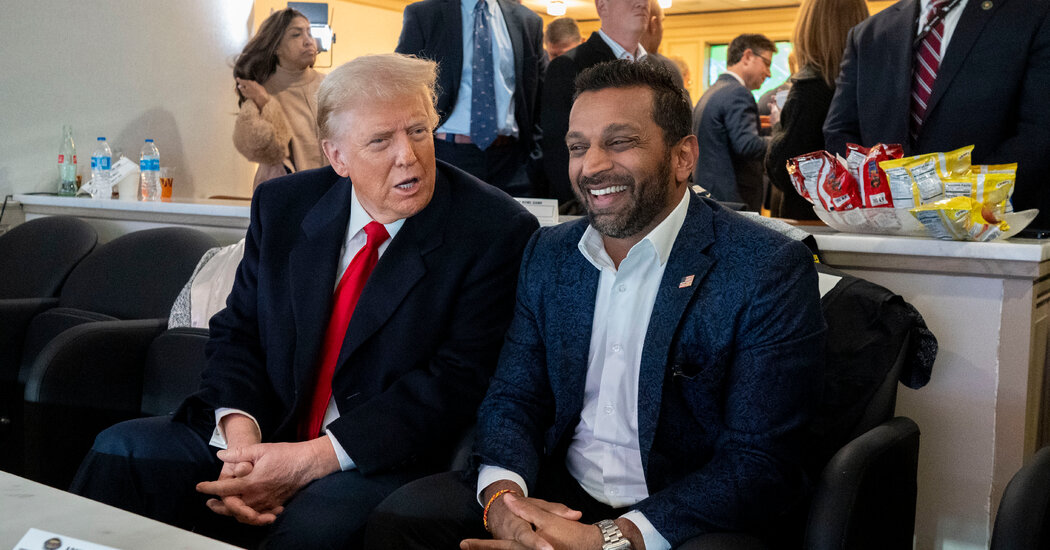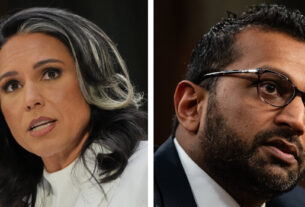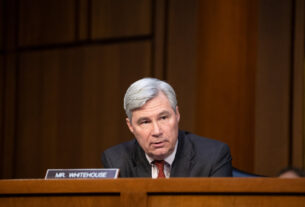Kash Patel, the Trump loyalist tapped to run the F.B.I., has provided fresh details about his life — including legal work on behalf of a human trafficker, membership in an exclusive Las Vegas club and participation in a diversity-and-inclusion program, in new documents sent to lawmakers.
In a 24-page questionnaire sent to the Senate Judiciary Committee this month, Mr. Patel also downgraded his work as a Justice Department investigator on the 2012 attack in Benghazi after claiming he had been one of those leading the inquiry.
The committee could schedule a hearing on Mr. Patel’s razor’s-edge nomination as soon as Jan. 29, according to several people with knowledge of the situation. As part of that process, Mr. Patel, 44, responded to a series of standard questions about his personal and professional experiences.
Most answers are written in job-application boilerplate, but taken as a whole the questionnaire paints a far more nuanced portrait than the bombastic and combative Mr. Patel projects on right-wing podcasts or as a speaker at Trump rallies.
In particular, it sheds new light on his early years as the Long Island-bred son of immigrants from the Indian state of Gujarat who worked as a caddy and toiled for years as a local and federal public defender in Florida.
He reports in detail on his legal defense of crack dealers, gun runners and one 2013 case in which he persuaded federal prosecutors to drop charges against a man accused of trafficking 17 people, including three minors, from an unnamed foreign country.
But one of the most intriguing lines is his reference to participating in the American Bar Association’s Judicial Intern Opportunity Program, a diversity initiative, while a student at Pace University’s law school in 2003.
The program, a summer internship with judges in 12 cities around the country, “provides opportunities to students who are members of groups that are traditionally underrepresented in the profession, including students from minority racial and ethnic groups, students with disabilities, veterans, students who are economically disadvantaged, students who identify as LGBTQ+, women and others,” according to the bar association’s website.
“It is also an opportunity to make an impact on the diversity and inclusion pipeline and give back to the legal community,” the program’s directors wrote.
A spokesman for Mr. Patel, one of relatively few people of color to be selected for top administration positions, did not immediately respond to a request for comment.
That he availed himself of such a program as an ethnic minority would be unexceptional had not Mr. Trump made attacking diversity, equity and inclusion programs in academia and government a core element of his pitch to voters.
On Day 1 of his second term, Mr. Trump announced an executive order ending D.E.I. programs in the federal government, which he has denounced as “Marxist” and racist. The F.B.I. has taken pre-emptive action, quietly closing its own D.E.I. office in December.
If confirmed, Mr. Patel would be the first director of color of an agency that had a decadeslong history of racial and gender discrimination.
Mr. Patel has been an unrestrained campaign surrogate for Mr. Trump, but has said relatively little over the years about diversity or inclusion, a go-to topic for Mr. Trump and his allies.
“I helped support diversity in the legal profession and mentor attorneys from underrepresented backgrounds,” he wrote of charitable work that included service as a board member of the South Asian Bar Association of North America.
Mr. Patel revisits familiar ground in the sections devoted to his more recent activities as a House staffer whose loyalty and assiduous courtship of Mr. Trump put him on the express elevator to senior national security posts in the president’s first term — and have now given him the opportunity to run the country’s most powerful and storied law enforcement agency.
In his 2023 memoir, “Government Gangsters,” and in a conversation on a September podcast of “The Shawn Ryan Show,” Mr. Patel inflated his role as a federal prosecutor in the investigation of the 2012 attack on a diplomatic compound and a C.I.A. annex in Benghazi, Libya, that killed four Americans. Mr. Patel made it sound like he had led the government’s overall effort to prosecute those involved in the attack.
In particular, he repeatedly said he was leading the prosecution’s efforts at “Main Justice.” But he makes scant reference to the case in the documents, simply saying he had “collaborated on cases tied to the Benghazi attacks.”
And he doesn’t mention Benghazi when asked to describe the 10 most important cases he litigated in his career.
The documents also shed some light on his personal life — he has incorporated a variety of businesses around the country, has coached in a youth hockey league and lives in Las Vegas. He was recently accepted as a member of the Poodle Room, a rooftop club at the Fontainebleau Hotel there, with an estimated $20,000 members’ fee. The club was named after a lounge of the same name in Florida, frequented by Frank Sinatra and the Rat Pack.





